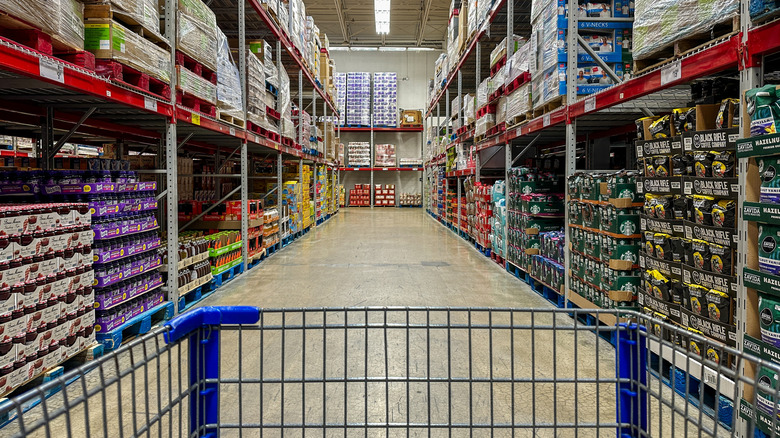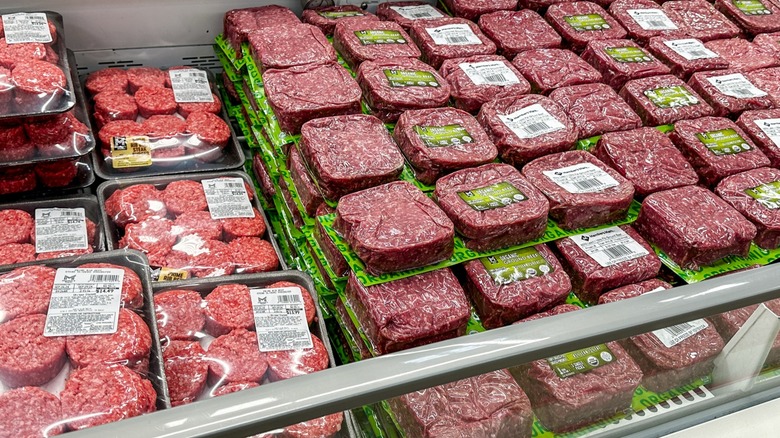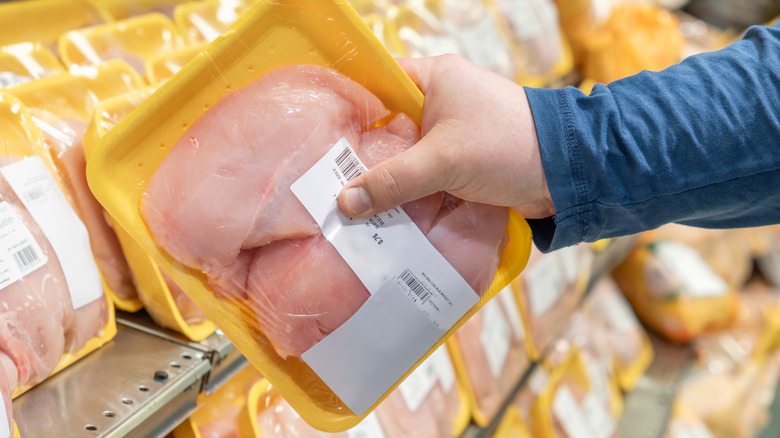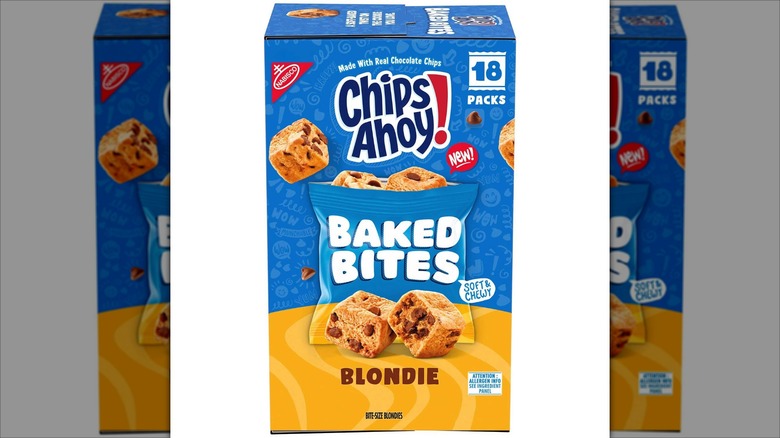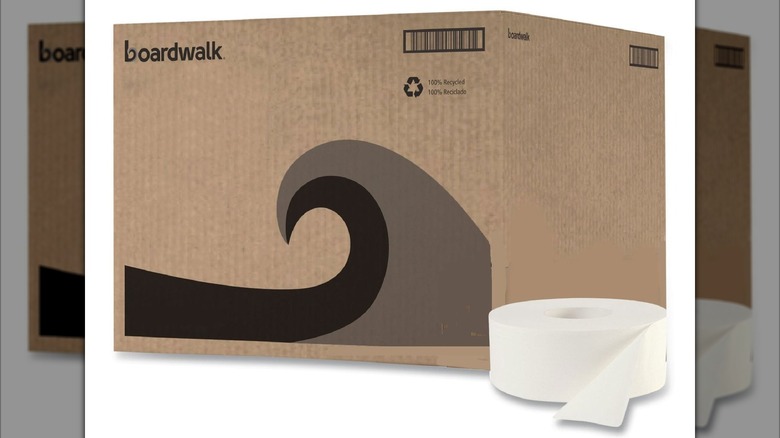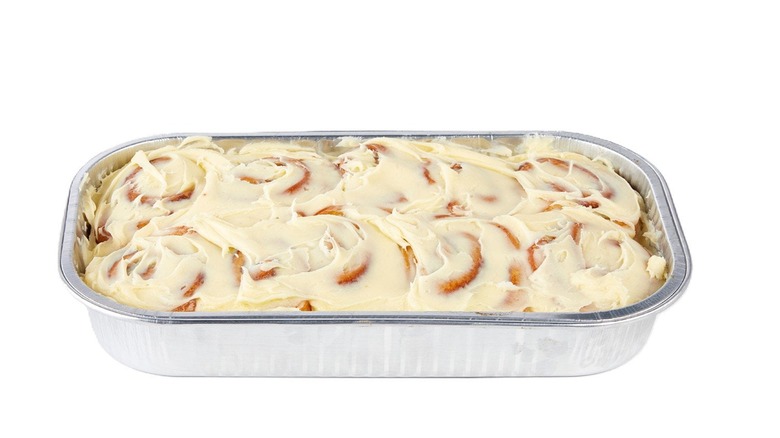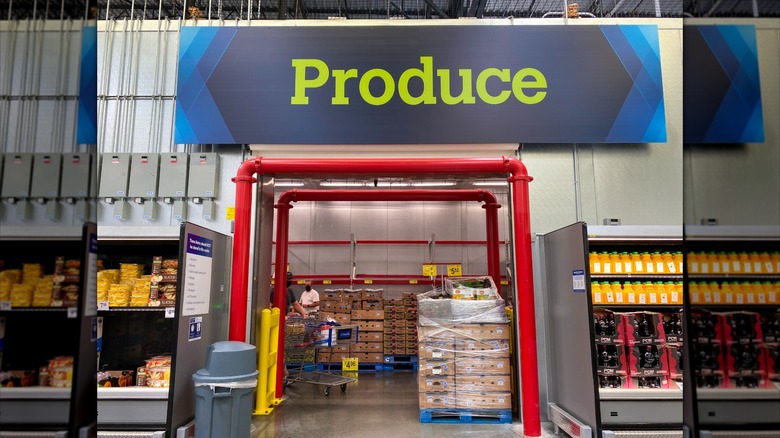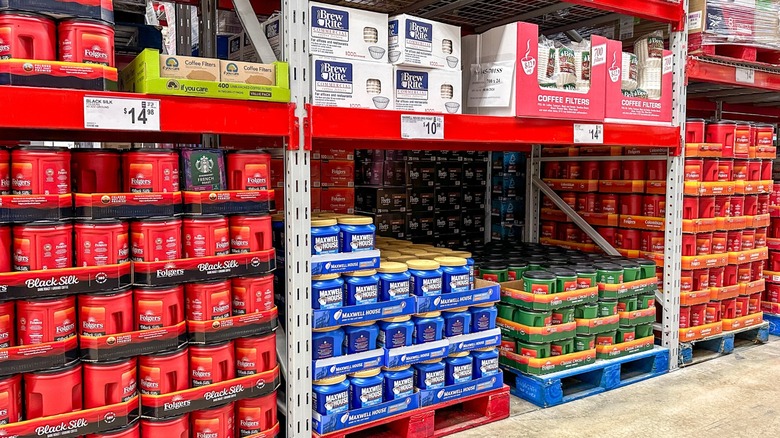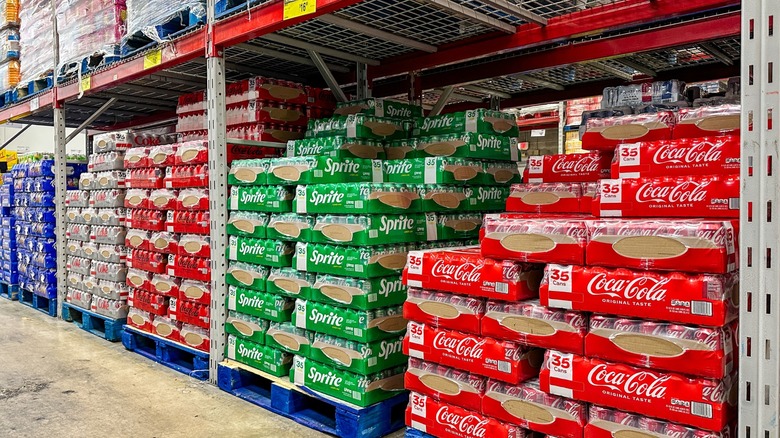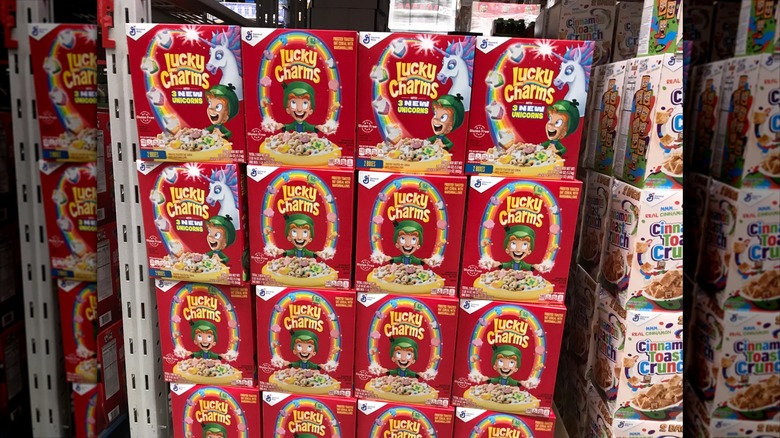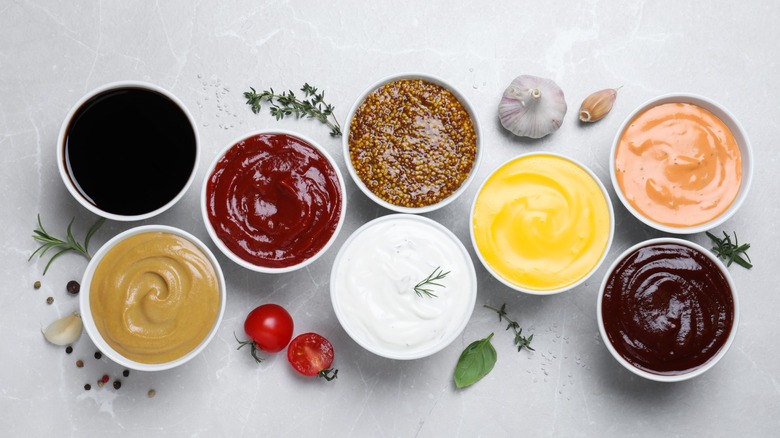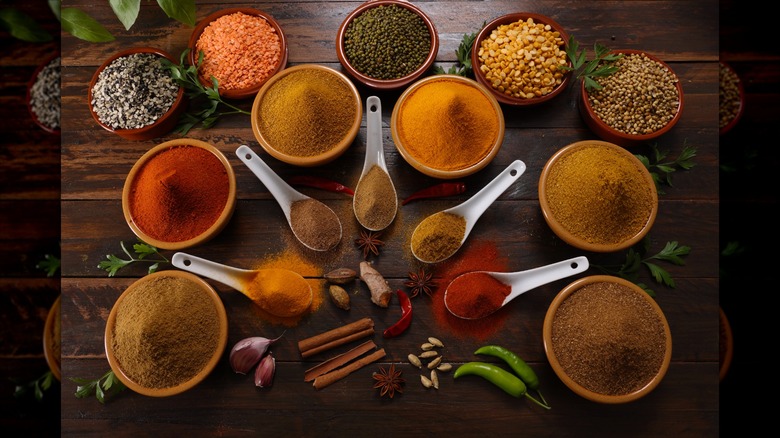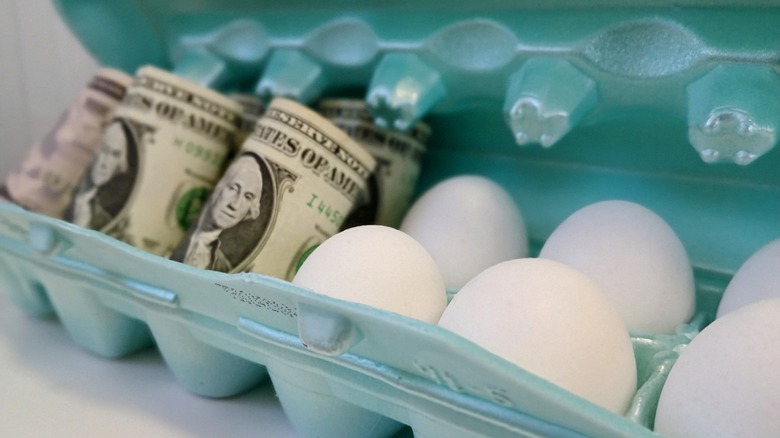13 Sam's Club Groceries That Aren't Worth The Purchase
Sam's Club is often considered one of the best grocery store chains for budget shoppers, and we love a good Sam's Club haul as much as anyone. There's something magical about those oversized carts that somehow makes you believe you "need" a 36-pack of muffins, or enough dip to feed an entire neighborhood. But lately, some members are side-eyeing a few items they feel don't live up to the hype, or the price tag.
We decided to dig in, scrolling through social media, and snooping through product reviews to find the real talk from actual shoppers. It turns out, not every item that looks like a deal actually is one. Some long-time favorites have apparently lost their spark, while others have people wondering if inflation has quietly snuck into the bakery case. From baked good switch-ups that sparked outrage, to snacks that now feel salty (and not in a good way), these are the Sam's Club buys that people are warning us to skip.
Fresh meats
The gossip around the Sam's Club fresh meat department has gotten loud. What used to be a primary reason to join is now one of the biggest debates among members. Multiple shoppers have said that meat at Sam's Club is no longer a bargain, and they're not shy about backing it up with receipts. One Reddit user compared Sam's Club prices to those of its rival, Costco, and was surprised by the results. "When you break it down by the ounce or pound, a lot of their prices are actually higher than what you'd find at Aldi, Target, Walmart, or even some local supermarkets." Another added: "I'm searching markdowns at my local chains and sometimes getting 30–50% off ... way more reasonable than Sam's."
The numbers support this frustration. As of October 2025, Sam's Club's boneless, skinless chicken breast runs about $2.77 per pound. The same cut reportedly hovers at around $2.57 at Walmart, and Aldi's price comes in around $2.49 in many markets (exact prices vary by region). Thread after thread, the message is consistent: Shoppers feel that the meat aisles no longer justify the standard cost of a Sam's Club membership, especially when Club membership costs $50 per year, and Plus membership runs $110 per year.
Milk
Milk is a Sam's Club staple that was once regarded as a steal of a deal, but is now getting raked over the coals. From whispered complaints to full-blown rants, sentiment on social media is unanimous: Buying milk at Sam's Club is particularly disappointing these days. Some consumers on Reddit speculate that milk is a loss leader item at other stores, so retailers aren't trying to make money off it. However, the higher price tag at Sam's still stings, especially when tacked on to already paying the standard cost of a Sam's Club membership ($50 per year for Club membership, and $110 per year for Plus.)
In online threads comparing costs, multiple folks display a roller coaster of emotions, from confusion to frustration. As one Redditor wailed: "Why is Sam's Club now more expensive than Walmart? What's the point?" This is a question that keeps popping up, and no satisfying answer seems to exist in Comment Land.
A staple item like milk is basic, consistent, and nearly universal in household use. When people can buy it cheaper without a membership, it highlights a bigger issue. If the everyday essentials at Sam's Club aren't better priced, this can chip away at the entire value proposition.
Chicken breast
It's easy to find complaints about the chicken breast at Sam's Club. Increased costs have some shoppers staggering back in the meat section, as the price per pound can feel like a proverbial punch in the gut. Customers have rightly pointed out that just down the street, at competitors' stores, prices are about the same, or even slightly lower. For many, that's not just disappointing, but a clear signal that the once-beloved bulk discount club is losing its grip.
A common gripe is that when price differences shrink to pennies, the justification for paying for a Sam's Club membership starts to disappear. Why drive farther and buy in bulk if you're not saving a generous margin? In some comment sections, consumers are saying that they see no real advantage now. What's the point, when chicken breast prices are flat, or even better, at stores that don't require a membership?
This seems to be a litmus test for whether the whole membership model still holds. When your chicken doesn't feel like a deal anymore, people notice. And for many, believing the savings hype might just be among the top mistakes people make when shopping at Sam's Club.
Chips Ahoy! Blondie Baked Bites
Sometimes, consumer frustration is less about actual costs, and more about unmet expectations. If you ever needed proof that not every cookie bite is a good bite, Chips Ahoy! Blondie Baked Bites from Sam's Club are the exhibit A of disappointment. According to general consensus, these questionable treats don't taste like blondies, or even cookies, but more like dehydrated cookie dough that would be better off in space, like that super-weird astronaut ice cream. While fans of the classic Chips Ahoy! name expected a nostalgic treat, many couldn't even finish the pack (there are 18 of them in there, you know.)
Shoppers' main peeve is that these little pouches promise chewy, cookie-bar magic, but instead deliver something that tastes more like preservatives and regret. The discrepancy has created a full-on comment section revolt on Reddit, with some users going so far as to deem the product inedible. As one user put it: "Bro so bad, I rather eat air." You know it's bad when people give up on anything chocolate-related.
It's clear that people feel duped, even betrayed, by the branding on these Baked Bites. They've sparked one of the more united warnings about wasting money at Sam's Club, so if you see that glossy blue box winking at you from the shelf, maybe keep walking.
Jumbo Roll Toilet Paper
Sam's Club's jumbo rolls are catching flack from shoppers who've realized they're paying premium prices for something they could've easily grabbed online or at a regular store for less. Even finance sites are echoing the sentiment, with a recent article on GO BankingRates pointing out that bulk paper products aren't the slam-dunk savings they once were. Sam's Club and Amazon both offer 12-count rolls of 2-ply, septic safe industrial toilet paper. "But while Sam's Club Boardwalk JRT Jumbo Roll will set you back nearly $50, you can head to Amazon and find their Karat 9″ Jumbo Roll for about $8 cheaper."
The math just doesn't seem to add up anymore. The idea is that buying in bulk from a warehouse should translate to visible savings per roll. When that isn't the case, shoppers feel hoodwinked. The difference may only be a few dollars at checkout, but multiply that across all those club-sized packs, and suddenly, it becomes a big deal, or no deal at all. Basically, while Sam's may still have the edge on some bulk essentials, the toilet paper debate shows how shoppers are now scrutinizing everything in an attempt to ensure their savings aren't being flushed away.
Cinnamon rolls
These cinnamon rolls used to be a fan-favorite bakery staple, one of the must-try Sam's Club items under $10. Shoppers couldn't get enough of the soft, gooey buns, each generously slathered in icing. But an updated version has left loyal customers feeling downright deflated, disappointed by smaller rolls (now 10 to a pack instead of eight) as well as a changed frosting recipe, and a slightly altered texture. The bakery switch has sparked serious online grumbling, with Sam's Club shoppers saying the new rolls are nowhere near as indulgent as the originals. One disgruntled buyer was brutal with their online scorn, taking to the Sam's Club comments section to describe the new (not) improved rolls as "like a bagel with birthday cake icing."
Fans describe the updated version as lighter on flavor and less rich, which is basically code for "this is not what I signed up for." The icing — once a thick, sweet highlight — is now thinner, and the rolls themselves just don't have that same melt-in-your-mouth magic.
It's the kind of change that makes you nostalgic for what once was, which explains why the switch has become somewhat of a rallying point, sparking a "why mess with a good thing?" mentality. The verdict? Sam's Club cinnamon rolls went from weekend treat to cautionary tale. Consumer are swiping left, because the love just isn't there anymore.
Fresh produce
The fresh produce at Sam's Club is stirring up a ton of chatter, and making the case against buying in bulk. Shoppers consistently point to it as one of the most wasteful bulk buys because it simply doesn't last. You might feel like you're saving when you walk out with 2 pounds of berries or a mountain of lettuce, but according to online commentary, that savings wilts fast, literally. "I'd have to eat broccoli as the main course for every meal to eat them fast enough," explained one Redditor who's been enticed by low prices in the past.
The frustration is real. It's one thing to toss a bruised banana into the bin, but another entirely to dump half a bulk pack because it turned on you, again, literally. Beyond freshness, there's a growing sense that the quality varies too much from batch to batch. Some shoppers say they luck out with crisp greens or firm fruit, but others report soft spots, quick spoilage, or produce that feels like it's already lived at least a few days on the shelf before their cart came around. So while the low price-per-pound looks appealing on paper, the consensus among members is simple: Unless you're feeding a small army, the fresh produce section at Sam's might be more trouble (and trash) than it's worth.
Coffee
Coffee lovers, brace yourselves. This one's a classic "good news, bad news" situation. On the bright side, you can still score those giant 2-pound bags or mega-containers of coffee at Sam's Club while feeling like you've just hacked the caffeine economy. On the downside, that buzz wears away, particularly when the taste of your coffee does, too.
Coffee has a short peak window for flavor, and buying it in bulk might mean that, by the time you reach the bottom of the bag, it tastes more like morning "meh" than magic. While it may be a fantastic product at first, yielding a cup of Joe that is fresh, aromatic, and satisfying, the fact remains that those rich notes can fade fast. The longer that (large) pack of coffee sits waiting to be sipped, the flatter it gets.
For everyday drinkers who like to savor every cup, any downgrade in taste is a definite deal-breaker. Unless you're brewing for a small army or a caffeine-obsessed office, you could be sipping on stale grounds before you hit halfway. So, while the math looks good on paper, the flavor doesn't always keep up. It's one of those rare cases where "less" might actually taste like more.
Soda
Soda fans, we hate to pop your bubble, but Sam's Club might not be the place to stock up. Doing so may even be among the bad grocery shopping habits that are costing you money. While the aisles are stacked high with rainbow-colored packs of every cola, lemon-lime twist, and root beer imaginable, shoppers (and experts) say the Sam's Club soda savings have fizzled out, maybe even fallen flat entirely.
These days, even regular old grocery stores often crush Sam's pricing during their sale cycles, especially around holidays and big game weekends. And when customers who have ponied up for a membership fee each month see they are also paying more per can at Sam's, the gloves start to come off. That might sound dramatic, until you realize that a full case or two adds up fast, especially if your family or business runs on caffeine. One shopper did the math on Reddit, and discovered that Sam's Club was pricing its soda at $0.329 per can, while the same soft drink at Walmart was only $0.307 per can.
It's one of those stealthy non-deals that trip up even the savviest bulk buyers. You feel like you're stocking smart, but those everyday grocery store flash sales quietly beat Sam's on value nearly every time. So, unless you're after convenience or really can't stand the thought of running out mid-party, it might be smarter to keep your soda strategy small.
Cereal
Your breakfast cereal may face dark days ahead, at least when bought in bulk. Giant boxes of cereal may feel like the most sensible buy ever, until that one fateful day arrives. After you've been spooning your way through delicious daily loop and ring goodness, you wake up to a dusty-bottomed, still quarter-of-the-way-filled box of stale cereal. Take a moment; it's a scary memory, we know.
At first glance, Sam's Club's cereal prices may look like deals. But keep in mind that cereal brands often offer coupons, so savvy shoppers may be better off collecting those to take to regular grocery stores. When you combine the discounts those coupons provide with special sale pricing, an ordinary chain often beats Sam's Club. And while unopened cereal lasts for months, once those jumbo boxes get their seals split, their crunch quickly splits too (as in, buh-bye).
Bottom line: It's hard to enjoy a "family-sized bargain" when you're spooning through limp flakes and sad marshmallows halfway through the bag. So, maybe stick to a regular store, where you can avoid the threat of stale cereal, and also take advantage of buying smaller boxes in a variety to mix things up. And no, we won't label you a commitment-phobe just because you don't want to be stuck with one cereal for weeks.
Condiments
We all love a good deal, but focusing too much on saving money can sometimes lead to questions like: "Why did I buy a gallon of mayo?" Sam's Club condiments live right on that fine line. The per-ounce price looks tempting; it's exciting to score a bucket-sized bottle of ketchup, or a jug of mayonnaise that seems like it'll last forever. The problem is, it kind of does.
Chances are, even the most devoted sandwich makers will hit a wall long before that gallon runs out. For most households, those industrial-sized containers are overkill. You could say it's one of those bulk buys that sounds brilliant until it becomes a race against spoilage.
When you consider the fact that smaller, fridge-sized bottles at regular grocery stores often go on sale, the bulk savings from Sam's seem a lot less exciting, especially once you factor in the potential waste of it all. We don't relish telling you this, but unless you're running a hot dog stand or hosting barbecues in your backyard every single weekend, the value of that bulk sale can put the squeeze on you to finish your favorite sauce before it solidifies.
Spices
Here's a tricky one: Bulk spices seem like a smart kitchen investment, until time and flavor betray you. The truth is, ground spices only stay fresh and aromatic for about two or three years, and that's being generous. When you buy the jumbo bottles from Sam's Club, you're practically guaranteeing that you'll one day find yourself doing the age-old sniff test, wondering: "How can I tell if my spices are fresh?"
The problem isn't so much about the quality of the product, but the quantity. Most home cooks just don't go through that much cumin, nutmeg, or turmeric fast enough to justify those generous Sam's Club sizes. Inevitably, after the flavor fades and the once-aromatic scent of your spices dulls, your "bargain" seasonings become dust-gathering displays of unintentional shelf décor.
For spices you use constantly, like salt, pepper, and garlic powder, it might make sense. But for everything else, it's just wasted potential in bulk packaging. For most households, grocery-store-sized bottles hit the freshness sweet spot: You finish them before they fade. While Sam's spices may give your food that desired kick at first, it may be time to give those mega jars the boot.
Eggs
Buying eggs in bulk at Sam's Club or other warehouse stores might sound cost-effective, but in practice, it's not a smart purchase for most households. Unless you're running a restaurant or bakery, or feeding a small army daily, five dozen eggs is simply too many for the average family to use before they expire. Sam's Club used to have more moderate options, like packs of 1/12, two, and three dozen eggs. However, even if you can find one of those these days, you may see that savings have shrunk. As one Redditor put it: "Sam's eggs come in two-dozen packs, but I can buy two dozen cheaper elsewhere."
Lately, many Sam's Club locations have limited egg sales to only the five-dozen packs, which feels like overkill. Most consumers are painfully aware of the ongoing egg shortages and supply chain issues affecting the industry (we have all been riding this roller coaster.) But forcing shoppers to buy more than they need doesn't fix shortages. When we hear that producers and wholesalers use these as reasons to consolidate packaging and distribution to reduce their costs, and thus present us with only an absolutely cracked amount of eggs, it does not fly.
Methodology
From reading mainstream media reports to listening to what you, the real Sam's Club shoppers, had to say, we uncovered the items causing the biggest Sam's Club stirs. Whether these comments were complaints about quality, shrinking sizes, or sticker shock that made members do a double-take, we listened. This list highlights the most frequently mentioned "not worth it" offenders. Think of it as a crowdsourced consumer guide, powered by your hot takes, honest opinions, and that one post about the OG classic cinnamon roll not getting the respect it deserves.
